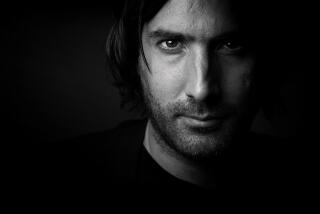Attorney Has the Last Word in Book Dispute
Financial disputes have been the mainstay of Woodland Hills attorney Rafael Chodos’ law practice for the last two decades.
That’s why he wasn’t reluctant to engage in a legal battle of his own when the West Group backed out of a contract to publish his 1,600-page tome on fiduciary duties.With the help of his brother and nephew, both of whom also are experienced business litigators, Chodos took the giant Minnesota-based legal publisher to court.
The lawsuit could serve as a case study for a lawbook. The lesson: Don’t take on a lawyer in a legal dispute.
“Most authors don’t have the moxie to sue their publisher,” Chodos said. “But I do this for a living.”
In June, a federal appeals court in San Francisco ruled that West had breached the agreement with Chodos and that he could seek restitution for the three years he spent on the book. Taking into account his hourly rate as an attorney, Chodos is asking for more than a million dollars in damages, nearly 10 times what he had expected to be paid under the contract.
To make Chodos’ victory even sweeter, West’s business includes publishing appellate rulings from across the nation--so it will have to print the decision in its own extensive databases.
*
It was 14 years ago that Chodos first got the idea to write an authoritative book on the laws that govern fiduciary duties--the obligations that arise when a person holds something in trust for another.
He noticed how common fiduciary duties are in everyday life and how difficult it sometimes is to know who is in the right in a dispute. Fiduciary duties, unlike contractual obligations, are “vague and fuzzy,” he said.
“Any time you are an employee or an agent or a spouse or a [business] partner--any of those relationships implies fiduciary duty,” he said. “Sometimes, it’s not quite clear what the fiduciary is supposed to do.”
Chodos initially signed a contract for his book with Bancroft-Whitney in 1995. The firm was later acquired by West.
During the years he was writing, Chodos says he shut down most of his legal practice and often rose at 4 a.m. to work on the book. “I wanted to have a quieter life and time to focus on this, because I thought it was my mission,” he said. After Chodos submitted a final manuscript, West said that it would not publish it because of concerns about its “market potential,” according to the appellate decision.
“It just came down to simple economics,” West spokesman Kyle Christensen said of the publisher’s move. “The company felt that no one would buy it.”
Chodos sued in early 1999, soon after his manuscript was rejected. A district judge sided with West, ruling that the publisher had the discretion to decline to publish. But Chodos and his familial legal team pressed on.
In its decision, the U.S. 9th Circuit Court of Appeals panel overturned the lower court’s decision, holding that the contract allowed West to reject the manuscript only if the “form and content” of the work were unacceptable, not for economic reasons alone. The court noted that the publisher agreed that Chodos’ writing was of “high quality.”
Lloyd Jassin, a New York-based publishing attorney, predicts the ruling will make publishers more cautious when forming and terminating contracts. “They’re going to put provisions in their contracts that give them the right to terminate for changed market conditions,” Jassin said.
The amount of restitution remains to be determined in court. West declined to comment on that aspect of the case.
Under the contract, Chodos was to receive a 15% royalty. Bancroft editors had told him a successful title typically grosses $1 million, Chodos said.
Chodos contends that he is now owed up to $1.4 million for 3,600 hours’ work--calculated using his hourly rate as a lawyer of $300 to $400--because he has been deprived of other expected benefits, such as an enhanced professional reputation.
“If West had gone ahead and published the book, I would have been quite happy with $150,000 in royalties,” he said. “When they blew the contract away, the correct measure for my damages at that point became ... the value of the time I spent writing.”
Chodos also decided to publish “The Law of Fiduciary Duties” himself. He formed Blackthorne Legal Press and hired a copy editor, designer and printer.
The result is an imposing-looking volume bound in a dark blue leather cover that vaguely resembles a religious tome.
It dissects the fiduciary duties of corporate director toward shareholder, doctor toward patient, public official toward constituent, and the reciprocal duties of husband and wife and business partners, among others.
Chodos’ prose is peppered with references to hundreds of California court cases dating back to the 1850s. Distilled versions of the cases are found at the end of the book.
Tamar Frankel, a Boston University law professor who specializes in fiduciary duty, said Chodos has created a useful reference tool for attorneys looking for cases to bolster their arguments.
“This is a very efficient method of finding what you want, which may otherwise be a needle in a haystack,” Frankel said. She added that a CD-ROM version of the book, which contains hypertext links to summaries of cited cases, is especially helpful.
The book also contains a section of fairy tales rewritten by Chodos to illustrate legal arguments.
In “Jack and the Beanstalk,” Jack’s estranged sister sues him for half of the golden eggs laid by the goose Jack snatched from the ogre. Jack’s sister contends the eggs are part of the estate of their mother, who has died.
The sister argues that Jack was acting as his mother’s agent when he traded her cow for the magic beans and that any benefit he gained from the resulting beanstalk does not belong to him alone, but to all of his mother’s heirs.
Chodos, who believes that Jack should get most of the eggs because of his “extraordinary efforts [in] exploiting the beanstalk for his own benefit,” plans to finish a book of legal fairy tales later this year. But he hasn’t yet decided who he’ll approach to publish it.
And he’s not ruling out working with West.
“I am very angry that West, which is supposed to be a guardian of the law, treated [my book] so badly,” he said. “But no matter how great I am at marketing and selling my book, they are probably 100 times better.”
More to Read
Sign up for our Book Club newsletter
Get the latest news, events and more from the Los Angeles Times Book Club, and help us get L.A. reading and talking.
You may occasionally receive promotional content from the Los Angeles Times.





